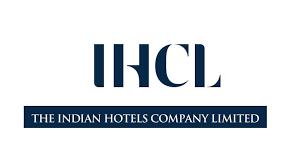International Conference on Travel, Tourism, Hospitality & Culture-2024 (ICTTHC – 2024)” on the theme “Culture & Cuisine in the Digital World ”16th-17th February 2024
The 2 days “International Conference on Travel, Tourism, Hospitality & Culture-2024 (ICTTHC - 2024)” on the theme “Culture & Cuisine in the Digital World '' successfully organised on 16th & 17th February 2024, in association
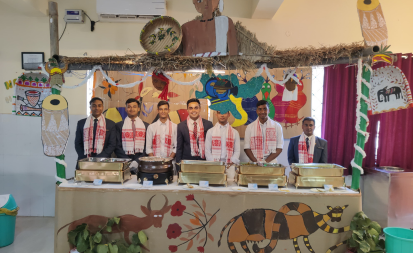
The 2 days “International Conference on Travel, Tourism, Hospitality & Culture-2024 (ICTTHC – 2024)” on the theme “Culture & Cuisine in the Digital World ” successfully organised on 16th & 17th February 2024, in association with Ministry of Tourism, government of India and Department of Tourism Art Culture Sports and Youth Affairs, Government of Jharkhand at Institute of Hotel Management Catering Technology and Applied Nutrition (IHM), Ranchi. The event was supported by Hotel Radisson Blu, Ranchi, Hotel Capitol Residency, Ranchi and The Open Field Sustainability Farm, Khunti as the Hospitality partners. Also, the event was supported by Hello Life Magazine, Hospemag, Spiritz Magazine and Chef Arena Magazine as the media partners.
On the day 1, the Vice Chancellor of Jharkhand University of Technology, Dr. D.K. Singh as the Chief Guest and Director of Tourism, Government of Jharkhand Smt. Anjali Yadav, IAS, as the guest of the honor inaugurated the conference. The conference started with the Lamp Lighting and Ganesh Vandana followed by the Paika Folk Dance of Jharkhand.
Dr. D.K. Singh underscored the pivotal role of digitalization in his opening remarks, drawing parallels with ancient Russian Revolutions, specifically, highlighting the importance of students applying their acquired knowledge to leverage the benefits of the digital age. Additionally, he emphasized the cultural aspect as a valuable product for tourists in this era of digitalization.
Smt. Anjali Yadav extended her thanks to the administration and co-sponsor for spearheading innovative events that play a crucial role in propelling the Tourism Industry forward. She acknowledged their efforts in this regard. Additionally, she underscored the significance of addressing the evolving needs of customers, particularly in the context of Homestay facilities and ensuring a secure environment for tourism. Smt. Yadav emphasized the imperative of prioritizing service quality improvements to elevate customer satisfaction levels and foster lasting customer loyalty.
Dr. Bhupesh Kumar, Principal, IHM Ranchi and Conference President, welcomed all the delegates and extended his gratitude to the Ministry of Tourism, Government of India and Department of Tourism, Government of Jharkhand for their support. He appreciated the role of Hospitality industry in making the conference a success especially the team of Hotel Radisson Blu Ranchi, Hotel Capitol Residency Ranchi and The Open Field Khunti. He also, thanked the unconditional support of Magazine partners – Hospemag, Hello Life, The Chef Arena and Spitiz Magazine.
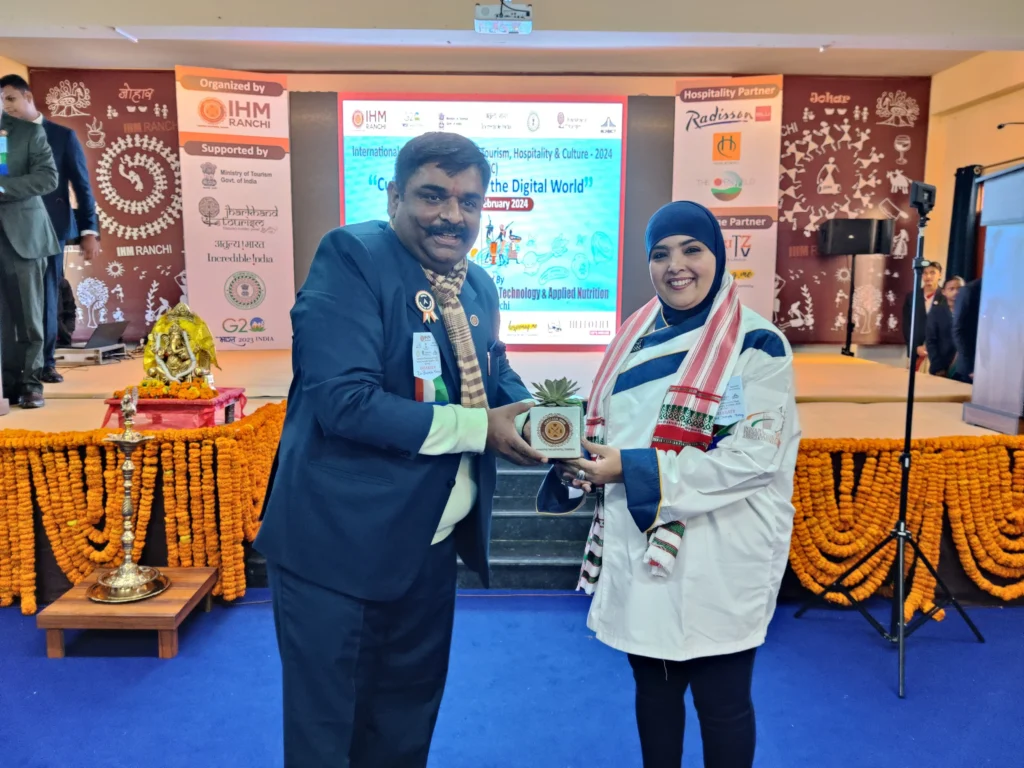
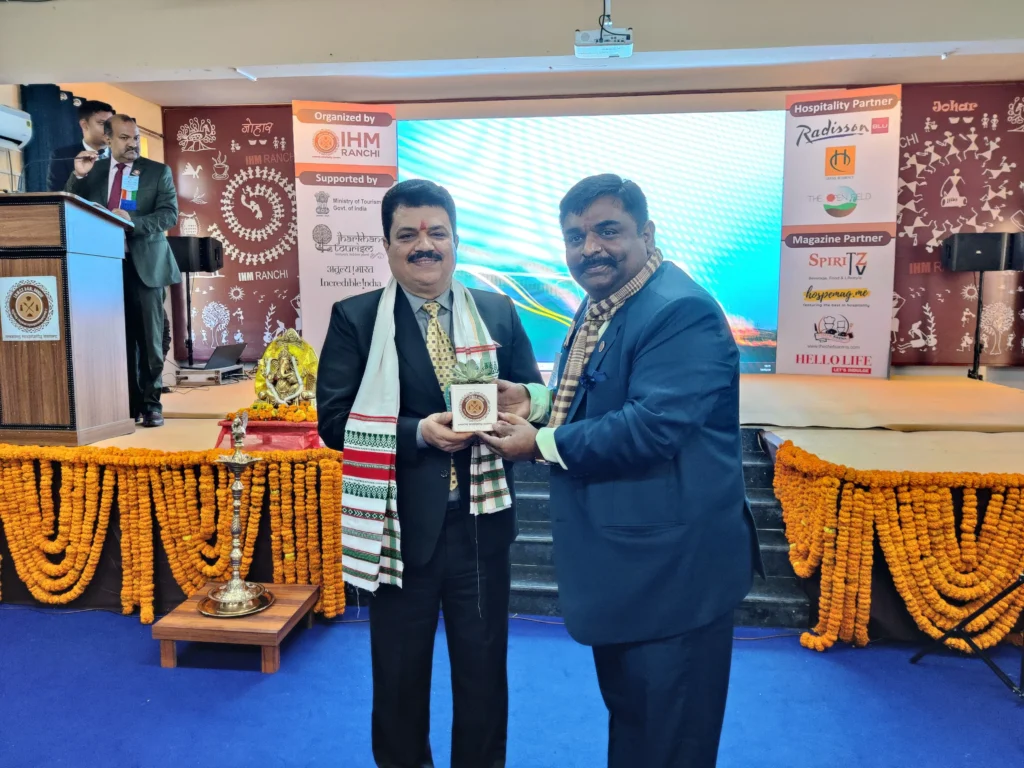

The first keynote address was delivered by Prof. Maharaja Vijay Reddy, Associate Dean (Research and Knowledge Exchange), Faculty of Arts, Business and Social Sciences, University of Wolverhampton, UK wherein he gave an insight on ‘The global priorities and key trends shaping the future of hospitality industry’. He discussed the exceptional nature of hospitality in ensuring customer satisfaction and emphasizes the significance of promoting equality, diversity, and inclusivity for all. Furthermore, he shared insights into the widespread popularity of Madua and its current global demand.
In the second keynote address was delivered by Dr. Manisha Oraon, Co-Founder, The Open Field Farms and Camp Tribe Jharkhand. She shed light on the culinary heritage of Jharkhand, delving into the preservation of indigenous culinary knowledge through the examination of techniques like the role of oral traditions and the transmission of recipes through generations.
In the third keynote address, Dr. S.C. Bagri, Former Vice Chancellor of Himgiri Zee University and Member of INCCU, UNESCO, Uttarakhand, India, emphasized the significance of students. He delved into the evolution of wellness tourism, illustrating the shift from Ayurveda retreatments to the emergence of Spa resorts. Dr. Bagri also addressed the dynamic nature of the hospitality industry, discussing instances of both growth and development, highlighting the various fluctuations within the sector.
After the keynote address Panel Discussion on “Culinary Tourism: Today & Tomorrow” was conducted under the panel chair-cum-moderator: Prof. Nimit Chowdhary, Head of the Department of Tourism and Hospitality Management, Faculty of Management Studies, Jamia Millia Islamia, New Delhi wherein the expert speakers were Master Chef Jameela Zakey, Lebanese & Syrian Expat Chef, Chef Dr. Prem Ram, Associate Professor and Programme Coordinator, BCIHMCT, New Delhi, Chef Nishant Choubey, Corporate Chef Seinan Tokyo, Consulting Chef for Michelin Plated Indus, Co-Founder Street Storyss, Chef Ramchandra Oraon, Executive Chef, Hotel Radisson Blu, Ranchi and Chef Asit Kundu, General Manager of Hotel Capitol Residency.
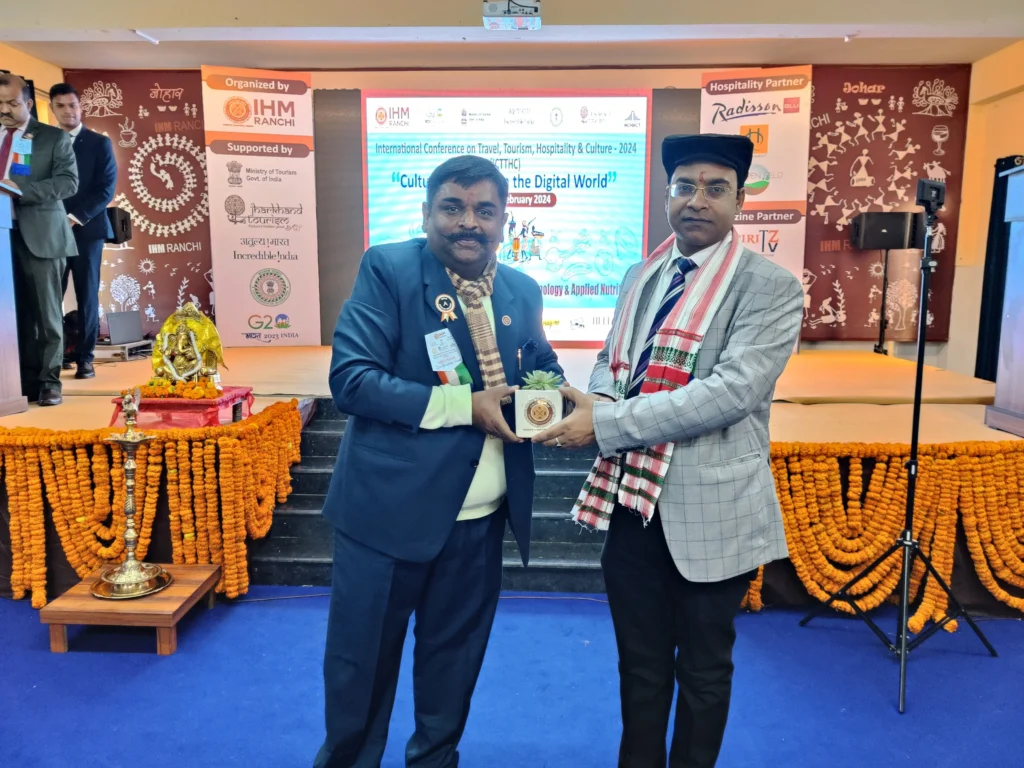

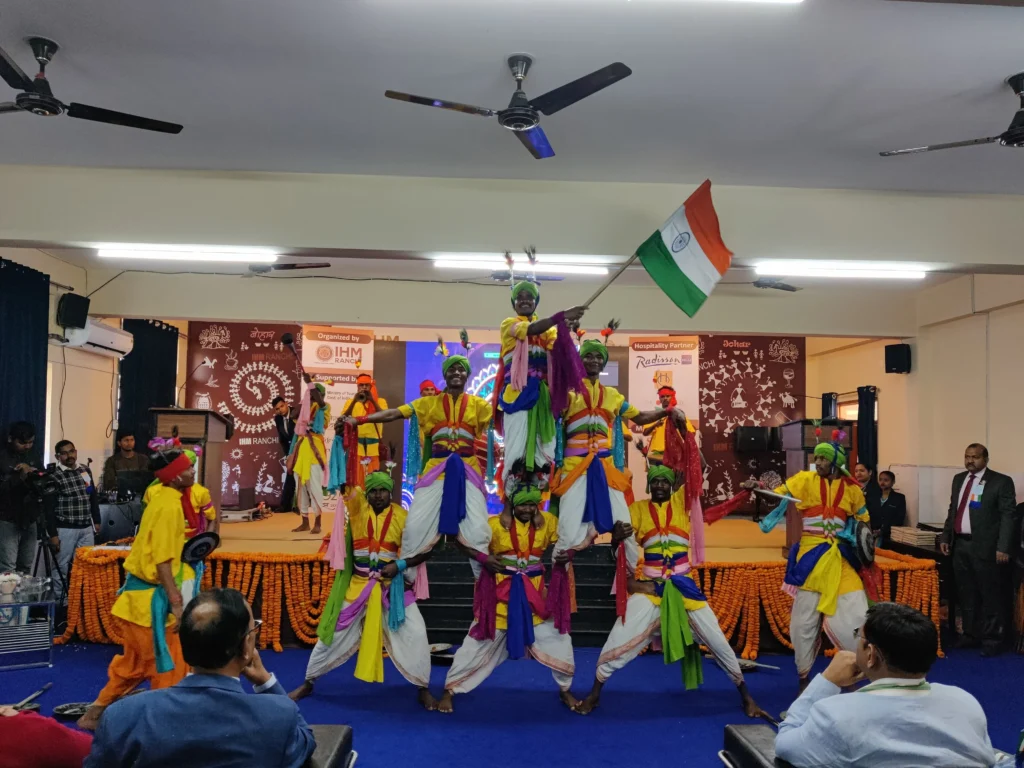
During the panel discussion Prof. Nimit Choudhary mentioned that Tourism is about experiences rich tourist. He also expressed his views on the current and future trends of culinary tourism, providing numerous facts and examples to support his perspective.
Master Chef Jameela Zakey conveyed her thoughts, emphasizing that cuisine serves as a reflection of culture. She highlighted the notion that serving any cuisine implies a connection to a specific culture, cautioning against the potential risks of limited knowledge. Furthermore, she shared her perspective on the importance of maintaining authenticity in food.
Chef Nishant Choubey underscored the abundance of flora and fauna in Jharkhand, advocating for a harmonious fusion of diverse cuisines while upholding authenticity. He cautioned against using social media merely for popularity, emphasizing the significance of serving food with a purpose. Additionally, Chef Choubey highlighted the importance of imparting knowledge about each dish to guests during the dining experience.
Chef Dr. Prem Ram acknowledged the importance of the fusion of dishes rather than arbitrary innovation. He recognized the significance of millets and local ingredients, aligning with the principles of sustainability.
Chef Ramchandra Oraon highlighted the boundless nature of innovation, exemplified by IHM Ranchi’s introduction of millet-based items. He stressed the profound impact of food, noting that it serves not only to fill the stomach but also to nourish the soul. Chef Oraon mentioned the transformative effect of the pandemic, turning everyone into a chef. Additionally, he advocated for the empowerment of village tourism, emphasizing its positive influence on local food and communities.
Chef Asit Kundu mentioned the importance of guests being informed about the dishes they are served. He recommended a sequential approach, emphasizing the need to first understand the proper recipe before venturing into experimentation. Chef Kundu emphasized the value of informed dining, encouraging guests to have knowledge about the culinary offerings. He suggested a foundational focus on mastering essential recipes before exploring creative culinary experiments.
There was unanimous agreement that the blending of authenticity and fusion in food is the culinary requirement of today and tomorrow.
The Panel Discussion was followed by the technical sessions wherein research papers were presented by the Industry professionals, Academicians, Research Scholars and Post Graduste Students of Hospitality and Tourism.
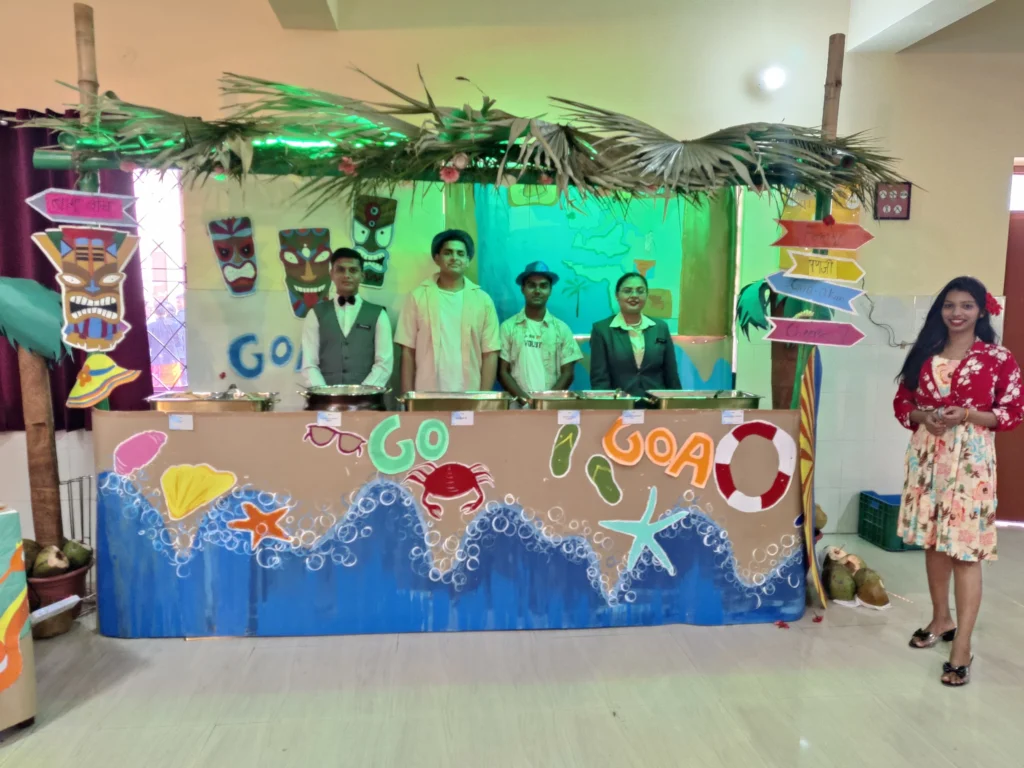


The technical sessions during the conference explored overall themes related to Culture & Cuisine in the Digital World during the first two days of ICTTHC – 2024 that focused on a wide range of topics namely, Tourism Promotion through Culture and Cuisine; Understanding Food and Cuisine – Influences and Impacts; Digitalization, Culture and Tourism; and Interdisciplinary Insights on Culture and Cuisine.
The Session Chairs were Dr. Satvir Singh, Director Studies, NCHMCT, Noida, Uttar Prasdesh; Dr. Pankaj Chatterjee, Assist. Registrar – Establishment & HOD, Hotel Management, RKDF University, Ranchi; Mr. Aswani Kumar, Asst. Director Studies, NCHMCT, Noida, Uttar Pradesh; Dr. Abhinav Shandilya, Associate Professor & Head, Dept. of HMCT, BIT Mesra, Ranchi; Mr. Sandipan Biswas, Head, Academics, IIAS School of Management, Siliguri, West Bengal and Dr. Nripendra Lingwal, Principal, Food Craft Institute, Deoghar, Jharkhand
The paper titled “Promotion of Indigenous Cultural Tourism through social media in Jharkhand with special reference to Smith 4H of indigenous Tourism,” authored by Mr. Ravi Kumar and Prof. Mukesh Chaturvedi, suggested advancement of the indigenous cultural tourism by strategically leveraging social media platforms, in accordance with the Smith 4H framework.
Ms. Debarpita Das delivered a paper titled “Examining the Taste: A thorough Examination of Culinary Tourism Developments and Effects.” The research paper provided a concise exploration of the role and significance of culinary tourism as an integral part of development.
Mr. Arya Mohan, Mr. Chanchreek Sharma, and Mr. Abhishek presented a paper titled “Bhojpuri Cuisine as a Culinary Tourism Experience in Bihar.” The paper highlighted the strong interest and visual appeal of the local cuisine, emphasizing how these factors positively contribute to educating and raising awareness about the culinary offerings in the region.
The paper titled “Edible Cutlery using Millets: A Sustainable Alternative to Traditional Plastic Cutlery” presented by Dr. Bhupesh Kumar and Mr. Tom Thomas, discussed the significance of millets and their health benefits in the contemporary era. The presentation highlighted how millets can be transformed into appetizing forms while emphasizing the sustainable aspects of this innovative approach compared to traditional plastic cutlery. During the presentation the audience were served with snacks in edible crockeries to have the first-hand experience of the same.
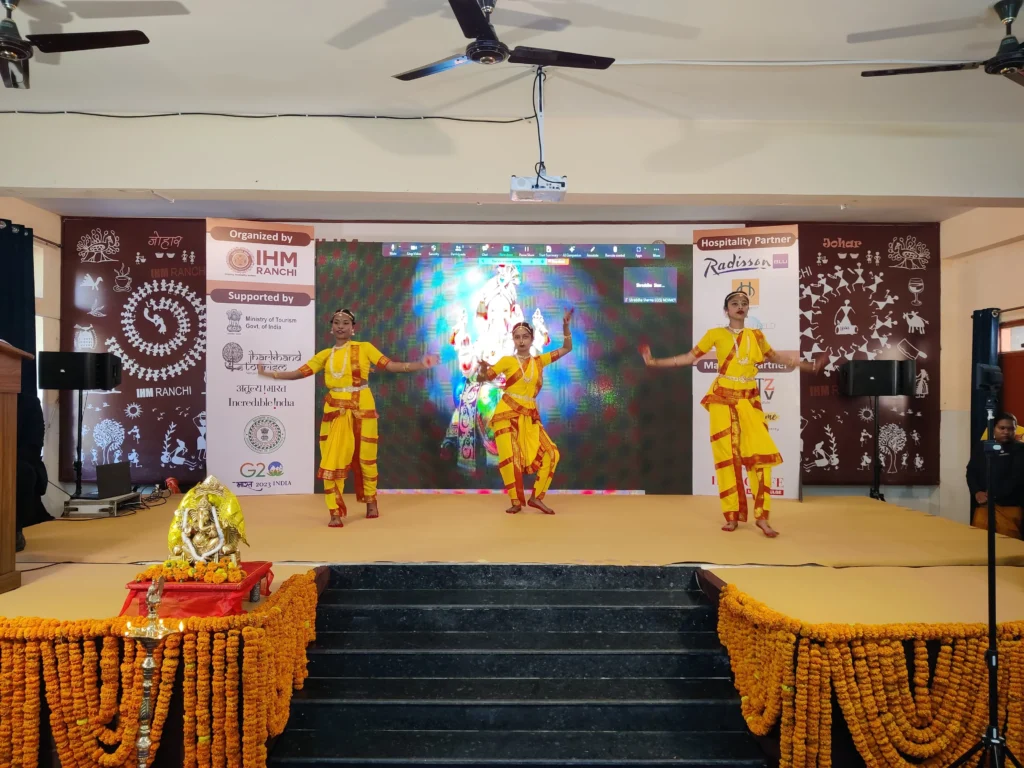

The paper titled “A Descriptive Study on the Influence of Food Delivery Applications on Culinary Preferences and Choices of People” by Mr. Tarun, highlighted the potential of contemporary technologies in the realm of food delivery to connect individuals and shape their culinary preferences.
The study conducted by Ms. Anindita Bharadwaj, Ms. Aadity Banerjee, Mr. Alok Aswal and Dr. Gaurav Bathla, titled “Digitalization in Hospitality Management & Tourism” delved into the influence of modern technology on the hospitality sector, stakeholders, and the advantages derived from its implementation.
In the paper titled “Promotion of India’s Culture through Social Media Platforms: A Comprehensive Analysis” by Mr. Rishav Banerjee, the author explored the significant and influential role of social media in promoting India’s culture. The paper emphasizes why cultural endorsement through social media has become a crucial and impactful aspect of boosting cultural awareness.
Ms. Shristi Munda and Dr. Ladly Rani presented a paper titled “Developing Hadia Herbal Garden: An Indigenous Approach for Eco-Traditional Tourism Promotion and Socio-Cultural Conservation in Jharkhand”. The paper highlighted the significance of such herbal gardens as a sustainable means for promoting eco-traditional tourism and contributing to the conservation of socio-cultural elements in the region. The development of Hadia Herbal Garden stands as a testament to the integration of indigenous practices with tourism initiatives, fostering both environmental and cultural preservation.
Ms. Aprajita Roy presented a paper on “Digital Trends and Consumer Behaviors: A Deep Dive into the Symbiosis of Digital Culture and Marketing Strategies” illuminated the intricate relationship between digital culture and marketing strategies. The analysis provided valuable insights into the evolving landscape of consumer behaviors in the digital realm. The study underscored the necessity for businesses to adapt and align their marketing strategies with emerging digital trends to effectively engage and resonate with the contemporary consumer.
“Studying Social Media Trends as a Promotional Tool for Tourism: A Descriptive Approach” was presented by Mr. Soumyajit Bandyopadhyay and Dr. Jyoti employed a descriptive approach to unravel the dynamics of social media trends in the context of tourism promotion. The conclusion of their research likely encapsulates insights into the efficacy of social media as a promotional tool for the tourism sector.
Ms. Srijita Mukherjee paper on the “Impact of Digitalization on Village Tourism” sheds light on the transformative effects of digitalization within the realm of rural tourism. The study underscores the increasing significance of digital tools and technologies in shaping and enhancing the village tourism experience.
In paper titled “Digital Renaissance: Preserving and Promoting India’s Cultural Heritage in the Modern Age” by Ms. Sreejita Moulik emphasized the pivotal role of digital technologies in safeguarding and promoting India’s rich cultural heritage.
In the research paper titled “Digital Inclusion and Accessibility in Rural Tourism” presented by Mr. Sandipan Mandal emphasized the significance of digital inclusion and accessibility in transforming rural tourism. The paper highlighted the positive impact of digital initiatives on enhancing the accessibility of rural destinations, fostering community engagement, and contributing to the overall growth of rural tourism.
Mr. Samyo Ganguly’s paper titled “Digital Flavour: Exploring how Digital Media Shapes Lost Bengali Cuisine” suggested an exploration of the way digital media influences or revives aspects of Bengali cuisine that may have been lost or less known. The paper delved into the ways in which digital platforms contribute to the documentation, promotion, and preservation of traditional Bengali culinary practices, thereby shaping the perception and understanding of these cuisines in the contemporary context.
The paper titled “The Legacy of Culinary Knowledge among the Native Youths of State: A Gap Study with Reference to the Acceptability of Bihari Regional Food” by Dr. Kumar Satyam, Dr. Neeraj Aggarwal, and Mr. Rajnish Kr. Singh addressed the investigation of culinary knowledge transfer and acceptance among the native youths in the context of Bihari regional food. The study focussed on identifying gaps and patterns in the transmission of culinary traditions and understanding the factors influencing the acceptance of traditional Bihari cuisine among the younger generation.
Respected Principal, Dr. Bhupesh Kumar, concluded the technical session by extending felicitations to all the Session Chairs for their valuable contributions and efforts in conduction of the sessions.
On the day 2, February 17th, 2024, the 4th keynote address of the conference was delivered by Dr. Ashish Dahiya, Professor & Director, Institute of Hotel & Tourism Management, M.D University Rohtak, Haryana India on “Virtual Feasts: Navigating the Diverse Gastronomic Traditions of India in the Digital Age”. He mentioned the importance of leveraging digital platforms to explore and celebrate the diverse gastronomic traditions of India. He also highlighted the role of technology in fostering cultural appreciation, preserving culinary heritage, and promoting a global understanding of India’s rich and varied food culture.
Dr. Master Chef Lawrence Gomes, Gold Medalist, Golden Hat Recipient, who is also awarded as 100 Best Chefs of the World in 2023, presently associated with Aamby Valley City, Maharashtra, delivered the 5th keynote of the conference on “Value of Indian Culinary Art and Cuisine”. His remarks offered valuable insights and perspectives on the significance of Indian culinary traditions, potentially shedding light on the cultural, historical, and artistic aspects that make Indian cuisine unique and worthy of global recognition.
The keynote was followed by the 2nd Panel Discussion of the conference on the topic on “Importance of Adding Social Media Management in Course Curriculum of Hotel Management Education” chaired by Dr. Satvir Singh, Director Studies, NCHMCT, Noida and moderated by Mr. Ajay Kumar Sahoo, Principal-in-charge. Dr. Satvir expressed that effective social media management involves a strategic, dynamic, and well-coordinated approach that aligns with your overall business objectives and adapts to the evolving landscape of social media. The expert speaker Mr. Kamal Kant Pant, Principal, IHM Delhi- mentioned that in contemporary times, individuals are increasingly immersed in social media platforms, and the impact of this digital presence is undeniably significant. Notably, the education sector is proactively embracing strategies to modernize itself through active engagement on social media platforms. The paramount importance lies in maintaining a consistent and cohesive approach across various channels to ensure effective communication and representation in the online sphere. The second expert Mr. Raja Sadhukhan, Principal, IHM Kolkata – Agress that in the digital realm, being mindful becomes imperative It is a delicate balance between authenticity and presentation. While social media allows us to showcase our achievements, milestones, and positive aspects of our lives, it also prompts us to navigate the fine line between genuine self-expression and the desire to conform to perceived societal expectations. The third speaker Dr. Bhuvan G. M, Principal, Apeejay Institute of Hospitality, Navi Mumbai, shared his own experience mentioned that, during the earlier period characterized by limited internet availability, individuals encountered challenges in staying connected, accessing information, and conducting routine tasks that have now become seamlessly integrated into contemporary life. The constraints imposed by the shortage of internet facilities were particularly pronounced, hindering communication, access to knowledge, and the ability to engage in various online activities. One of the panel expert Mr. Brajesh Gupta, General Manager, Sarovar Portico Le Lac, Ranchi, shared his view that the use of social media has become an integral part of the student experience, revolutionizing the way education is accessed, shared, and experienced. Its multifaceted nature caters to various academic and social needs, facilitating a seamless transition from offline to online modes of learning and communication. Mr. Ashirbad Praharaj, General Manager, Cluster General Manager at Taj Hotels and Resorts for Odisha, Jharkhand and Bihar was the Industry expert in the panel discussion. He mentioned that by approaching social media with a refined and thoughtful mindset, students can harness its potential for personal and academic growth while minimizing potential risks associated with its use.
There was unanimous conclusion that the “Importance of adding Social Media Management in Course Curriculum of Hotel Management Education” is vital and obligatory.
During the valedictory ceremony, certificate for best research paper was awarded to Dr. Bhupesh Kumar and Ton Thomas for their research on “Edible Cutlery using Millets: A Sustainable Alternative to Traditional Plastic Cutlery” and Mr. Arya Mohan, Mr. Chanchreek Sharma, and Mr. Abhishek for the paper titled “Bhojpuri Cuisine as a Culinary Tourism Experience in Bihar.” Then all the researchers were felicitated for their exemplary research work in the field of Tourism and Hospitality. Further, the Conference Report was presented by the Conference President Dr. Bhupesh Kumar, the Principal of IHM Ranchi, highlighting the salient features of two days Conference. He emphasized the conference has enlightened the participant as well as stakeholders to get an insight into the challenges and opportunities, coming ahead due to the rapid changing in technology. Expressing his gratitude towards the Chief Guest, Guest of Honor, the delegates including experts and keynote speakers, the participants and paper presenters, Ministry of Tourism, Government of India and Department of Tourism, Government of Jharkhand for their unconditional support, Hotel Birsa Vihar JTDC, Hotel Radisson Blu Ranchi, Hotel Capitol Residency Ranchi and The Open Field Farms Khunti for their excellent Hospitality support for the delegates and Magazine partners Hello Life, Hospemag, Spiritz and Chef Arena for thee wide coverage of conference.
The vote of thanks was extended by Mr. Alok Aswal, HOD, IHM Ranchi acknowledging the efforts of all the delegates, researcher, government agencies and media partner for the contribution to the success of the onference.
After the conclusion of the conference all the delegates were take for an excursion to The Open Filed, A Sustainable Creative Community Farm for experiencing the Agrotourism and Farm to table kitchen concept. During the visit the delegates and participants were shown the in-house organic farming of all the indigenous raw materials required for cooking the local cuisine. Then, everyone experienced the traditional methods of cooking and tasted the ethnic dishes enjoying the local flavour and essence of the Jharkhand Cuisine. Dishes like, Hadiya, Phutkal Kambucha, Dumbu with Mahua dip, Gulgula with Kudrum chutney, Daal Pitha, Red Ant Chutney with Goda Rice, Desi Murgu Jhor, Maad Jhor, Aloo Badi etc. Finally the conference was called off with outstanding feedback by all the delegates and participants.
—–
 English
English French
French German
German Italian
Italian


